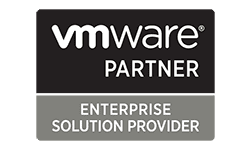Local Accountability for Enhanced K-12 School IT Management
Implementing Effective Local Accountability Systems in K-12 School IT for Optimal Performance and Compliance.
Kelsey Young, Copywriter and Media Specialist
5 Min Read

Let’s talk about something crucial for your school’s tech management—local accountability. If you’re running IT for a K-12 school, you know how important it is to keep everything secure, efficient, and compliant. But what does local accountability really mean, and why should it be a priority in your IT strategy?
By following this step-by-step guide, overcoming common challenges, and implementing best practices, you can successfully implement local accountability in your organization. This approach will not only enhance performance and productivity but also foster a culture of trust, collaboration, and continuous improvement.
Let’s dive in.
Understanding Local Accountability
In the context of IT solutions in education, local accountability means being able to manage, monitor, and evaluate your school’s tech infrastructure and policies at a local level. It’s about ensuring your systems are secure, compliant with regulations, efficiently using resources, and ultimately supporting educational outcomes. Think of it as having a solid accountability system in place to keep everything running smoothly.
How to Implement Local Accountability in Your Organization
Implementing local accountability in your organization is crucial for fostering transparency, responsibility, and efficiency. By empowering individuals and teams to take ownership of their actions and outcomes, you can create a culture of trust and collaboration that drives success. Follow this step-by-step guide to implement local accountability:
Set Clear Expectations: Define roles, responsibilities, and performance expectations for each team member. This clarity ensures everyone understands their individual and collective accountabilities.
Establish Key Metrics: Identify key performance indicators (KPIs) that align with your organization’s goals. These metrics will help measure progress and hold individuals accountable for their contributions.
Encourage Autonomy: Foster an environment where employees have the freedom to make decisions and take ownership of their work. This autonomy empowers individuals to be accountable for their actions and outcomes.
Provide Support and Resources: Ensure employees have the necessary resources, tools, and training to fulfill their responsibilities. By providing support, you enable individuals to meet their accountabilities effectively.
Regularly Review and Evaluate: Establish a system for regular performance reviews and evaluations. This allows you to assess progress, provide feedback, and address any issues or challenges.
Challenges of Implementation
Implementing local accountability may come with challenges. However, by being aware of these challenges and taking proactive steps to overcome them, you can ensure a successful implementation:
Resistance to Change: Some employees may resist the shift towards local accountability due to fear or uncertainty. Communicate the benefits and rationale behind this approach to alleviate concerns and gain buy-in from the team.
Lack of Clarity: Ambiguity in roles and responsibilities can hinder local accountability. Continuously communicate expectations and provide clarity to avoid confusion and foster accountability.
Inadequate Support: Without proper support and resources, employees may struggle to fulfill their accountabilities. Invest in training, mentorship, and tools to empower individuals to succeed.
Keys to Success
To ensure successful adoption of local accountability, consider these best practices:
Lead by Example: Demonstrate accountability in your actions and decisions. When leaders model the behavior they expect, it sets a positive tone for the entire organization.
Communicate Effectively: Open and transparent communication is crucial for local accountability. Foster a culture of open dialogue, active listening, and constructive feedback.
Celebrate Success: Recognize and celebrate achievements to reinforce the importance of accountability and motivate individuals to continue delivering results.
Continuously Improve: Regularly evaluate and refine your local accountability practices. Adapt and evolve based on feedback and lessons learned to optimize outcomes.
Implementing these measures might seem challenging at first, but the long-term benefits of a well-accountable IT system far outweigh the initial efforts. As technology continues to evolve, so too must our approaches to managing and maintaining it, ensuring that our schools are equipped to provide the best possible education in a safe and effective manner.
So, let’s make local accountability a priority. Your school, your staff, and your students will thank you for it!
Practical Steps for IT Directors
Set Clear Objectives: Define what local accountability means for your school. Set clear objectives and goals that align with your educational mission and IT strategy.
Develop an Accountability Plan: Create a comprehensive accountability plan that includes policies, procedures, and performance metrics. Make sure this plan is adaptable to changing needs and technologies.
Implement a LAS System: A Local Accountability System (LAS) can help streamline the management of your IT infrastructure. This system should integrate with your existing tools and provide a centralized platform for monitoring and reporting.
Engage with Stakeholders: Regularly engage with teachers, students, parents, and the community. Gather feedback and involve them in decision-making processes to ensure your IT solutions meet their needs.
Monitor and Report: Use analytics and reporting tools to continuously monitor the performance of your IT systems. Provide regular updates to stakeholders to keep them informed and involved.
Local accountability is not just a buzzword; it’s a fundamental aspect of effective IT management in K-12 schools. By ensuring data security, optimizing resources, enhancing educational outcomes, and engaging the community, schools can create a robust and responsive IT environment. For IT directors, embracing local accountability means building a technology infrastructure that is secure, efficient, and supportive of the school’s educational mission.
Why Choose GDC
At GDC IT Solutions, we recognize the vital role that local accountability plays in business success. Our comprehensive services are designed to enhance transparency, efficiency, and compliance within your school. With our solutions, you can rest assured that your business remains fully accountable to stakeholders, customers, and the local community.
Why opt for our local accountability services? We offer customized solutions tailored to the unique needs of your business. Our team of experts collaborates closely with you to understand your goals and challenges, crafting a bespoke plan to implement local accountability practices effectively.
Key features and functionalities of our local accountability software include:
- Performance tracking: Monitor and analyze performance metrics to identify areas for improvement and make data-driven decisions.
- Customizable dashboards: Create personalized dashboards that display the most relevant metrics and insights for your business.
- Real-time alerts: Receive instant notifications and alerts for significant events or anomalies, enabling immediate action.
- Data visualization: Easily interpret complex data through intuitive charts, graphs, and reports.
- Integration capabilities: Seamlessly integrate our software with your existing systems and tools for a streamlined workflow.
We understand that every business is unique to specific requirements. That’s why our local accountability software offers customization options to meet your specific needs. Whether you require additional features, customized reports, or integration with third-party applications, our team will work closely with you to tailor our software to your exact specifications.
Trust GDC IT Solutions for the best local accountability software solutions. Contact us today to learn how our software can help your business thrive in your specific geographic location.
Ready to elevate your business? Discover how our local accountability solutions can drive success. Explore our services and learn how to integrate local accountability into your operations today.




